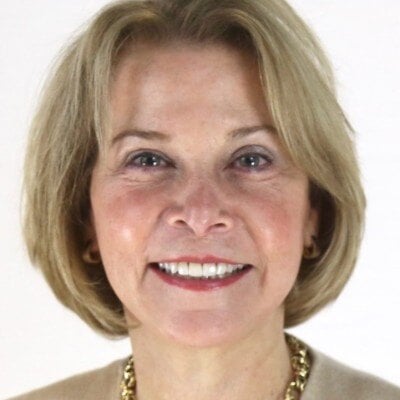The Public Capital Markets Credential (PCMC) program is a two-week, hybrid program tailored for university students, graduates, and early-career professionals interested in public finance and aspiring to work in public capital markets. In partnership with the Central University of Finance and Economics (CUFE) in China, and led by Professor Justin Marlowe, the program is designed to equip participants with practical knowledge and insights essential for success in the public capital markets sector.

|
|
Sub-national public capital market, municipal bond market |
|
|
Beginner, intermediate |
|
|
Two (2) weeks, approximately 20–25 hours per week |
|
|
January 19–30, 2026 |
|
|
$2,500 with various discount types |
|
|
One week virtual and one week in-person in Beijing, China |

Research Professor at the Harris School of Public Policy, Director at the UChicago Center for Municipal Finance
"I have worked in the financial industry for 10 years. The PCMC program provided me with a systematic understanding of municipal bond operations and the bond rating system. Its flexible format fit perfectly with my schedule as a working professional, while the Capstone project pushed me to grow, broadening my international perspective and marking a milestone in my career."
PCMC'25
"Thrilled to start my Research Assistant role through PCMC, working on a case study of Hebei municipal bonds for the Beijing-Tianjin-Hebei integration. This was my first RA experience—challenging at times, but the supportive team and UChicago’s rigorous academic culture left a deep impression on me."
PCMC'25
"Serving as a Research Assistant at UChicago’s Center for Municipal Finance strengthened my research skills and reshaped my professional perspective. Studying China’s municipal bond market, particularly the differences between general and special bonds, deepened my expertise in government financing and highlighted the role of public capital as a bridge between policy and markets."
PCMC'25
Public organizations borrow funds to finance capital investments and achieve long-term strategic goals, typically through financial instruments called “municipal bonds.” When accessing the municipal bond market (or similar sub-national capital markets), it is crucial to understand how and why these entities borrow, the challenges and opportunities they encounter, and what it means to borrow "effectively."
This course is centered around the borrower’s experience. We begin by exploring the fundamentals of how municipal bonds function, who invests in them, and their purpose. Next, we’ll delve into the conceptual frameworks and analytical tools that issuers use to evaluate and navigate the dynamics of sub-national capital markets. You'll also gain insight into the policy and regulatory factors that influence when and how issuers approach the market. Most importantly, you’ll apply the same analytical tools used by debt management specialists and key participants in sub-national capital markets.
By the end of the course, you’ll have developed a portfolio of applied work and gained broad exposure to the key institutions and major players in sub-national capital markets.
This lecture series covers the essential concepts of municipal bonds and sub-national capital markets, providing a solid foundation along with practical applications. The pre-recorded format allows you to learn at your own pace, offering the flexibility to fit the material into your schedules.
During virtual and in-person class meetings, you will engage with the professor in discussions of additional topics, cases, and examples, all designed to deepen your understanding of the material. The professor will also guide the application of relevant analytical tools in Excel or R.
In this module, you will engage directly with leading research centers and institutes that specialize in public finance and policy innovation. Through interactive seminars and discussions, you’ll gain firsthand exposure to how cutting-edge research is translated into actionable insights for governments, organizations, and communities. These dialogues are designed to spark new perspectives, deepen your understanding of real-world applications, and inspire you to integrate research-driven approaches into your own professional practice.
In this module, participants will leverage the knowledge and skills gained in the first three modules to address real-world challenges. Guided by the professor and TA, participants will collaborate in groups on one of two Capstone Tracks: Bond Structuring or Credit Analysis.
Bond Structuring Track: Participants will step into the role of underwriters for an upcoming competitive general obligation bond sale. The group will develop pricing and yield strategies, submit bids, and then compare their outcomes to the actual auction results. This exercise provides a practical opportunity to apply concepts related to municipal market dynamics, bond pricing, and bond sizing.
Credit Analysis Track: Participants will assess the credit quality of a general-purpose local government, using rating agencies’ credit criteria, key financial performance benchmarks, and comparisons to similar credits. After their evaluation, the group will decide whether the government merits a credit rating upgrade or downgrade. This exercise allows participants to apply the tools of credit analysis in a real-world context.

Lynnette Kelly
Former CEO of the Municipal Securities Rulemaking Board

Ashlee Gabrysch
Midwest Region Manager for Local Government Ratings at Fitch Ratings


| Week 1 (Virtual) | Mon | Tue | Wed | Thu | Fri |
| 9–10 a.m. | Virtual Program Orientation | Module 2: Virtual In-class Discussions - Applied Case Studies and Analytical Tools | Module 2: Virtual In-class Discussions - Applied Case Studies and Analytical Tools | Module 2: Virtual In-class Discussions - Applied Case Studies and Analytical Tools | Module 2: Virtual In-class Discussions - Applied Case Studies and Analytical Tools |
| 10–11 a.m. | Module 3: Virtual Research Career Sharing Session | Module 3: Virtual Research Career Sharing Session | Module 3: Virtual Research Career Sharing Session | Module 3: Virtual Research Career Sharing Session | |
| p.m. | Module 1: Pre-Recorded Lectures - Fundamentals of Public Capital Markets | Module 1: Pre-Recorded Lectures - Fundamentals of Public Capital Markets | Module 1: Pre-Recorded Lectures - Fundamentals of Public Capital Markets | Module 1: Pre-Recorded Lectures - Fundamentals of Public Capital Markets | Module 1: Pre-Recorded Lectures - Fundamentals of Public Capital Markets |
| Week 2 (In-person) |
Mon | Tue | Wed | Thu | Fri |
| 10 a.m.–noon |
Module 2: In-person In-class Discussions - Applied Case Studies and Analytical Tools
|
Module 2: In-person In-class Discussions - Applied Case Studies and Analytical Tools
|
Module 4: In-person Capstone Projects | Module 4: In-person Capstone Projects | Module 4: In-person Capstone Presentation |
| noon–2 p.m. | Lunch Break and Office Hour | Lunch Break and Office Hour | Lunch Break and Office Hour | Lunch Break and Office Hour | Lunch Break and Office Hour |
| 2–4 p.m. |
Module 2: In-person In-class Discussions - Applied Case Studies and Analytical Tools
|
Module 2: In-person In-class Discussions - Applied Case Studies and Analytical Tools
|
Module 4: In-person Capstone Projects | Module 4: In-person Capstone Projects | In-person Program Closing Ceremony |

Justin Marlowe, Ph.D.
Justin Marlowe is a Research Professor in the University of Chicago Harris School of Public Policy, where he also serves as Director of the Center for Municipal Finance. His research and teaching are focused on public finance, with emphasis on public capital markets, infrastructure finance, state and local budgeting, and financial disclosure. He also serves as Editor-in-Chief of the Municipal Finance Journal, and he co-hosts the Public Money Pod, a podcast produced by the Center for Municipal Finance.
January 19–30, 2026
20–25 hours per week
One week virtual (Jan. 19–23)
One week in-person (Jan. 26–30)
Location:
Beijing, China
Issued by the University of Chicago Harris School of Public Policy to showcase your academic rigor.
The program fee is $2,500. We offer partial discounts to early action applicants, CUFE and University of Chicago community members. In addition, we support applicants to explore funding sources from your academic institution, employer, or external scholarships.
|
Audience |
Program Fee |
|
General Applicant |
$2,500 |
|
Early Action Applicant |
$2,200 |
|
UChicago Network Affiliated |
$2,000 |
|
CUFE Network Affiliated |
Contact your university to learn more |
|
Organizational Sponsorship for 3+ Applicants |
Contact us at harriscredential@uchicago.edu to discuss group rates |
Once admitted, participants will secure their seat by submitting a $1,000 USD enrollment deposit, which is non-refundable and applies toward your total program fee. The remaining program fee balance will be paid before the program starts. Detailed payment instructions will be provided to admitted participants via email.
The application for 2026 PCMC has been closed. Applicants who are admitted will receive an email confirmation with payment instructions and further steps.
Below is a detailed overview of the application requirements included in the form.
|
|
Application Deadline |
Notification |
Reply Deadline |
|
Early Action |
October 14, 2025 |
Late October |
Early November |
|
Round 1 |
November 11, 2025 |
Mid-November |
Late November |
|
Round 2 |
December 16, 2025 |
Late December |
Early January |
Admissions notifications are typically issued by email within one week of the application deadline. Admitted students must confirm their intent to enroll by the reply deadline indicated in their admission letter and submit the non-refundable Enrollment Deposit.
We strongly encourage early applications to benefit from the early action discount. Participants requiring a visa to travel to China should plan ahead and allow ample time for the visa application process.
If the participant decides to cancel their Program enrollment, the participant must submit a request in writing at least 30 days prior to the program start date to harriscredential@uchicago.edu to receive the paid amount less the non-refundable enrollment deposit. Requests received 14 to 30 days before the Program start date are subject to a payment of 50% of the Program fee. Requests received within 14 days of the Program start date are subject to full payment of the Program fee. If the participant is unable to join the Program due to circumstances that the participant has no control or influence over, the refund amount will be considered on an individual case-by-case basis.
While the content is rigorous, there are no prerequisites for this program. We welcome learners from all backgrounds to apply.
Housing will not be provided during the in-person week, but we’ll share a list of nearby hotels for your convenience. Admitted students will receive more details via email.
There are no scholarship offerings for PCMC participants. Details about the possible discount types can be found in the “Program Fee and Payment” section.
For more financial tips, please read the blog "Financial Planning for Credential Programs".
The program is a non-credit program. You will receive a shareable certification issued by the University of Chicago Harris School of Public Policy to showcase your academic rigor.
Please confirm with your home school if this program is eligible for accreditation as a credit-bearing course.
Please feel free to reach out to us at harriscredential@uchicago.edu.